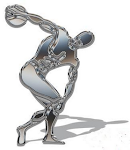INFLUENCE OF PLAYFUL ACTIVITY PRACTICE IN THE BALANCE AND THE MOTOR COORDINATION IN CHILDREN
A child motor development is very diversified and complex, there are many studies about motor development
and of the factors that may influence this motor skill acquisition process in each age. Factors like environment in which they live associated to social and cultural conditions are very important. In order to value these environment factors, the objective of the present study was to verify if the playful activity practice influences the motor development in children from 5 to 7 years old. Seventy-six children, divided into two groups of 38 children have participated in the tests; each group was evaluated as to the balance and coordination by the balance and coordination test protocol of Lefèvre (1976). A questionnaire was used to verify the children's physical activity level (PAQ-C). After this evaluation, the success percentage gains were calculated to the control and experimental groups for each test. The results show that the experimental group has gained a better performance on the tests; the 5-year-old children have gained a 75% success rate but in 6 and 7-year-old children the results were similar, in which 80% of the children have reached success rates, showing a better motor development and a better skill acquisition related to the balance and coordination. Based on this study, we are able to affirm that due to the playful activity practice, the environment influence lived by the experimental group of children have favored the success improvement of the realized tasks. We are able to conclude that playful and physical activities have great importance in children's life, favoring the refinement of the motor skills and healthier lifestyle habits.
Keywords:

Nenhum comentário:
Postar um comentário